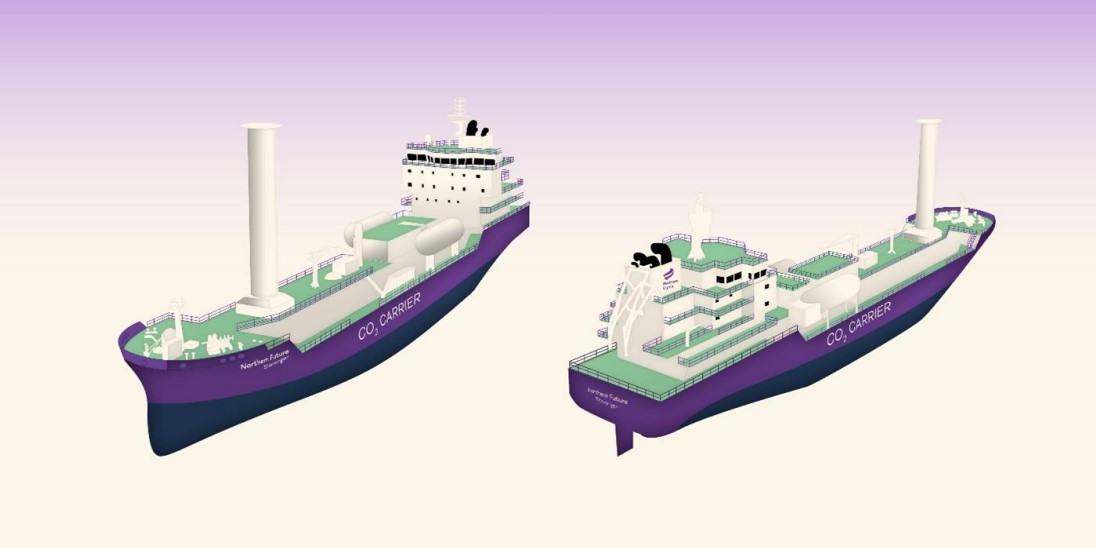Japan’s shipping giant K Line has entered into long-term charter contracts with Norway’s Northern Lights, a joint venture owned by Equinor, Shell, and TotalEnergies, for two LNG-powered liquefied CO2 vessels.
K Line and Northern Lights JV have signed bare boat charter and time charter contracts for the two 7,500-cbm LCO2 ships, according to a statement by K Line.
The company’s London-based subsidiary K Line LNG Shipping (UK) will undertake the management of these ships.
Following delivery in 2024, the vessels will transport liquefied CO2 from industrial emitters, including the Norcem Brevik and Hafslund Oslo Celsio carbon capture facilities, to the Northern Lights CO2 receiving terminal in Øygarden, Norway.
Northern Lights and K Line would jointly establish operational procedures for safe transportation of liquefied CO2, the statement said.
The ships are classified by DNV and will be registered in Norway and operated under Norwegian (NOR) flag by mainly Norwegian shipboard personnel.
K line is operating a fleet of LNG carriers but the shipping firm also aims to have about 40 LNG-powered vessels in its fleet by 2030 as part of the company’s plans to slash emissions.
“We are honored to participate in the Northern Lights project and contribute to the decarbonization of industry. We have been able to develop a new field by making use of our decades of know-how in liquefied gas transport”, Yukikazu Myochin, president and CEO of K Line, said in the statement.
LNG and wind
China’s Dalian Shipbuilding Industry (DSIC) recently started building these two LNG-powered CO2 carriers.
In October last year, the shipbuilder won the contract to build the two dedicated carriers, each with a length of 130 meters.
MAN’s ME-GI engines will power the CO2 carriers.
Besides LNG power, the vessels will feature a wind-assisted propulsion system and air lubrication in order to reduce carbon intensity.
Northern Lights signed in August what it says is the world’s first commercial agreement on cross border CO2 transportation and storage with Yara.
Yara and Northern Lights have agreed on the main commercial terms to transport CO2 captured from Yara Sluiskil, an ammonia and fertilizer plant in the Netherlands, and permanently store it under the seabed off the coast of western Norway.
Northern Lights is the transport and storage part of the Longship project, funded 80 percent by the Norwegian government.
Also, the Phase 1 installations should go online in 2024, with the ability to handle 1.5 million tons of CO2 per year, according to the JV.

